- Serbia
Get to know Serbia
- Citizens
Culture and science
Health services
Pension and disability insurance
- Business
Employment
Economy
- Media
- Government
- Contact
Keep in touch
Contact form
Back
Keepin touch
Whether you have a question, comment, suggestion or any problem in the purview of the government, send us your message and we will try to respond as soon as possible. If your problem is not in our purview, we will forward your message to the relevant institution.
Q:
A:
As many as 31,370 voters registered in Diaspora
Belgrade,
10 January 2007
State Secretary of the Ministry for the Diaspora Aleksandar Cotric stated today that 31,370 voters have been registered abroad for the parliamentary elections scheduled for January 21. These voters will vote on all five continents, in 35 countries and at 58 polling stations.
According to the Ministry, in a statement to RTS programme broadcast abroad Cotric specified that this number of voters is an increase by 350 times in relation to 2004 presidential elections when around 8,500 voters exercised the right to vote (at 30 polling stations in 18 countries), and an increase of 70% in comparison with the 2006 referendum when around 18,000 voters voted (in 24 states, at 40 polling stations).
"I suggest that our citizens abroad inform themselves at competent diplomatic and consular offices before January 21 on whether the polling stations will be opened since the condition for that is a minimum of 100 registered voters. They also have to be registered in the special voters' register aboard since without that it would be impossible for them to vote", explained Cotric.
By January 15 all voters should be notified about the date and time of elections, though it is possible to vote without this notification leaflet. He added that in order to vote, they must have some identification on them with their photograph.
"Voting will be performed from 7 am to 8 pm and polling stations abroad will close at the same time as those in Serbia. Apart from Serbia's diplomatic and consular offices, voting will be organised in Vicenza in the premises of the Serbian Orthodox Church where there are 853 registered voters, in Morocco in the camp of the Planum construction company with 143 registered voters, and in Montenegro (Podgorica, Budva, Herceg Novi, Tivat, Sutomore and Berane) where 2,500 voters were registered", announced Cotric.
Voting will be possible in former Yugoslav republics as well, said Cotric and 140 voters have applied a the Consulate general in Banjaluka (Bosnia and Herzegovina), 248 in Rijeka (Croatia), 259 in Slovenia and 560 in Macedonia.
The State Secretary announced that the number of registered voters is the largest in the following states: Germany – 8,257, Austria – 2,714, Montenegro – 2,500, Switzerland – 2,363, France – 2,324 and the US – 1,183.
"I suggest that our citizens abroad inform themselves at competent diplomatic and consular offices before January 21 on whether the polling stations will be opened since the condition for that is a minimum of 100 registered voters. They also have to be registered in the special voters' register aboard since without that it would be impossible for them to vote", explained Cotric.
By January 15 all voters should be notified about the date and time of elections, though it is possible to vote without this notification leaflet. He added that in order to vote, they must have some identification on them with their photograph.
"Voting will be performed from 7 am to 8 pm and polling stations abroad will close at the same time as those in Serbia. Apart from Serbia's diplomatic and consular offices, voting will be organised in Vicenza in the premises of the Serbian Orthodox Church where there are 853 registered voters, in Morocco in the camp of the Planum construction company with 143 registered voters, and in Montenegro (Podgorica, Budva, Herceg Novi, Tivat, Sutomore and Berane) where 2,500 voters were registered", announced Cotric.
Voting will be possible in former Yugoslav republics as well, said Cotric and 140 voters have applied a the Consulate general in Banjaluka (Bosnia and Herzegovina), 248 in Rijeka (Croatia), 259 in Slovenia and 560 in Macedonia.
The State Secretary announced that the number of registered voters is the largest in the following states: Germany – 8,257, Austria – 2,714, Montenegro – 2,500, Switzerland – 2,363, France – 2,324 and the US – 1,183.
-
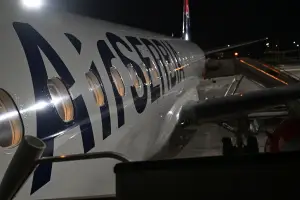 Belgrade, 4 March 2026
Belgrade, 4 March 2026Citizens evacuated from Israel safely arrive in Belgrade
-
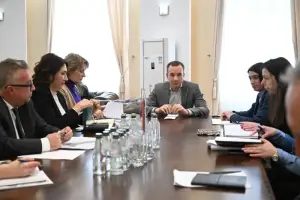 Belgrade, 2 March 2026
Belgrade, 2 March 2026Full support for Serbian citizens in war-affected Middle East region
-
 Belgrade/Tokyo, 27 February 2026
Belgrade/Tokyo, 27 February 2026Potential for further development of Serbia-Japan cooperation
-
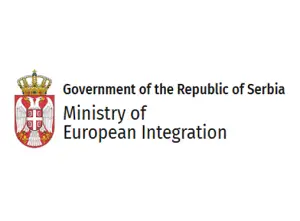 Belgrade, 26 February 2026
Belgrade, 26 February 2026Accelerating work on adoption, implementation of EU accession reforms
-
 Belgrade, 25 February 2026
Belgrade, 25 February 2026Consultations with EC on addressing domestic dairy market challenges
-
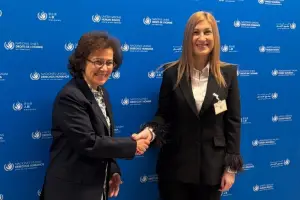 Belgrade/Geneva, 25 February 2026
Belgrade/Geneva, 25 February 2026Serbia firmly committed to continuous strengthening, promotion of human rights
-
 Belgrade, 24 February 2026
Belgrade, 24 February 2026Strengthening cooperation with Italy in fight against organised crime
-
 Belgrade/Washington, 24 February 2026
Belgrade/Washington, 24 February 2026Deepening strategic cooperation between Serbia, US in field of energy
-
 Belgrade, 23 February 2026
Belgrade, 23 February 2026Consultations with EC on milk, dairy products on 25 February
-
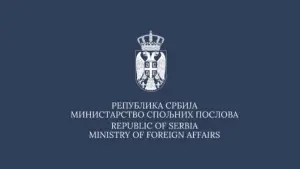 Belgrade, 21 February 2026
Belgrade, 21 February 2026Serbian citizens advised to leave Iran as soon as possible
